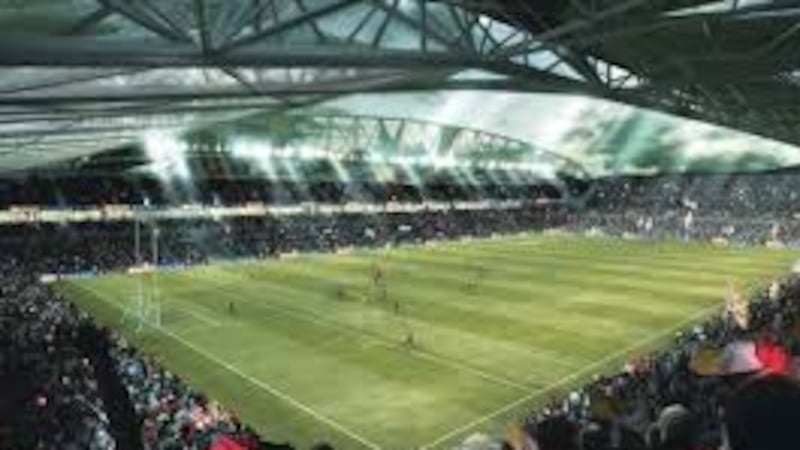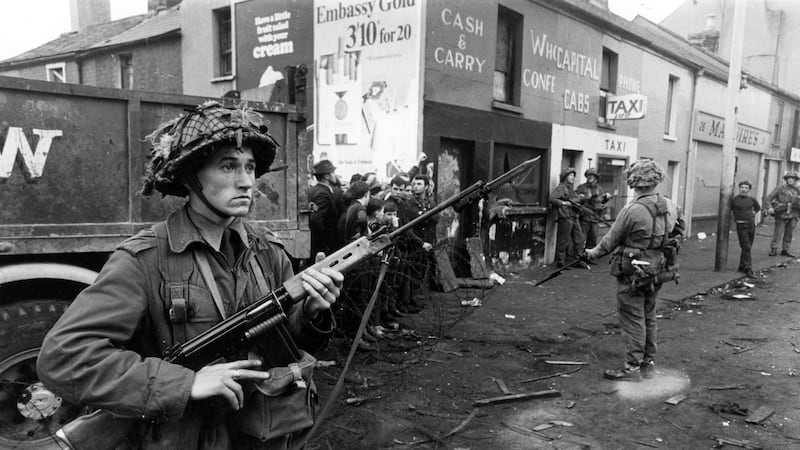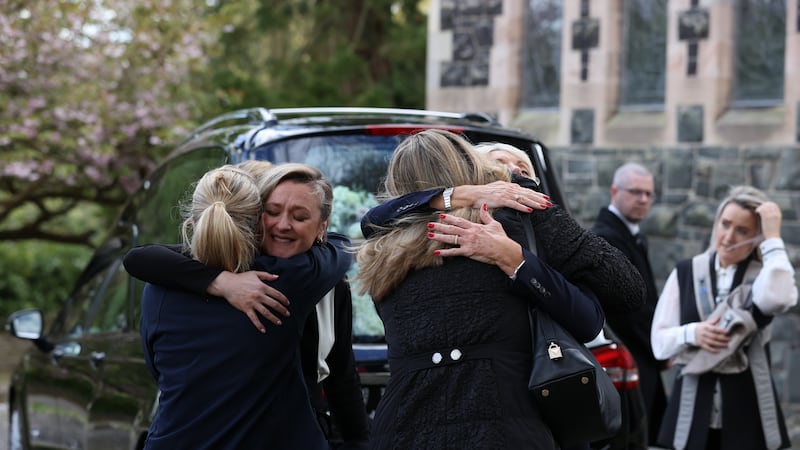You will be heartened to hear that our beloved Department of Culture, Arts and Leisure (DCAL) has progressed from supporting the film industry to making its own films.
Its latest production is an Irish adaptation of the Oscar-winning Field of Dreams, a film about an American farmer who responds to a voice urging him to turn his cornfield into a baseball stadium. The ghosts of past baseball stars turn up to play in it, thereby rescuing him from financial ruin.
So, stand by for Field of Nightmares - the Casement Park Story, which will not be coming to a cinema near you any time soon.
Starring Carál Ní Chuilín as the Voice and featuring a cast of thousands from Sinn Féin, the GAA, the PSNI, the SDLP which approved the initial plan, and (if it still exists) Sport NI, Field of Nightmares has already cost an estimated £6.7 million in professional fees. It is currently the most expensive field of hay in Irish history.
Film critics have described it as a political comedy, with several sub-plots of intrigue and incompetence. Although the GAA has pledged £15 million of the £77 million total cost, a staggering 80 per cent (£62 million) will come from public funds.
Although 35 per cent of Dublin's new Croke Park's funding came from the National Lottery, only 7.5 per cent came from the taxpayer. Insolvent Stormont's generosity knows no bounds.
(Oh dear, you say, I hope this column is not, in the DCAL Minister's words, `an anti-GAA element.' No, it is pro-GAA. Well, pro-hurling actually. With a few honourable exceptions, it sees Gaelic football as organised boredom, camouflaged with jargon.)
DCAL offered three reasons for its proposed lavish spending on Casement: it urgently needs refurbishment; it will boost the economy of west Belfast and it will promote Gaelic games. It got the first one half right. The other two are seriously flawed.
Casement certainly needs a new stand and new changing facilities. There is no argument about that. However, it does not `need' a 38,000-seat stadium with pubs, restaurants and corporate boxes in the same way that, for example, hospitals need medical equipment.
But, says the Voice, such a stadium will promote Gaelic games. It will not. The way to promote hurling in Belfast, for example, is to have every child in the city with a hurl in his/her hand. Sport can only be promoted through the development of children, not by facilitating those who see it as entertainment during dinner.
Would Antrim hurlers have avoided relegation this year,or would Fermanagh footballers have progressed even further if there had been corporate facilities in Casement?
(No, you may not ask if a 38,000-seater stadium would improve the quality of diving in Gaelic football. You could be barred from the corporate boxes for that sort of comment.)
President Obama recently undermined DCAL's argument that a redeveloped Casement would economically boost west Belfast.
His budget for next year proposes to end public subsidies for sports stadiums, because there is now sufficient evidence that they do not boost local economies. Public money spent in other ways can achieve significantly better results.
If DCAL disagrees, it might like to explain how exactly corporate boxes at Casement will reduce child poverty in west Belfast.
So why build such an unnecessarily grand affair? Could it, heaven forbid, be politically motivated?
There is nothing new in developing sport and stadiums for political advantage, as certain totalitarian regimes have discovered.
The Free State government used the revived Tailteann Games (an Irish equivalent of the Olympics) from 1924 to 1932 to promote the new post-Treaty state. For helping to organise the games, the GAA received £10,000 to build what became the Hogan Stand. Not much changes in Ireland.
But this time the process has been described as "shambolic" and a "mess". The British Cabinet Office identified a raft of failings, which the Minister published last Friday at 4 pm, giving journalists an hour to digest its 50 pages and seven minutes to ask questions.
"I am anti-censorship," she said, in this film's most immortal line. In Field of Dreams, the voice says, "Build it and he will come." Sinn Fein's voice in Field of Nightmares suggests, "Build it and they will come - to the polling stations".
In what looks like a monument to Sinn Féin's New Nationalism, the plans for Casement Park appropriately required guidance from London to stop them collapsing. So far the process has turned out to be a political own goal, which, sadly, still leaves Casement Park in urgent need of redevelopment. There will be no Oscars for this one.









